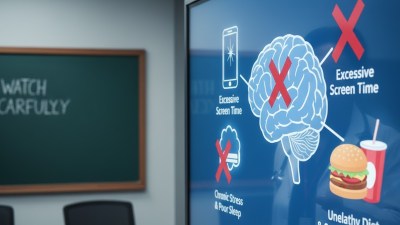MISA by another name
It is an irony that the men who suffered during the Emergency should cometo adopt the same method to govern. And that too in the month whe...

It is an irony that the men who suffered during the Emergency should cometo adopt the same method to govern. And that too in the month when IndiraGandhi imposed the authoritarian rule 25 years ago. She used the Maintenanceof Internal Security Act MISA, a preventive detention measure, to throttlethe voice of her opponents. She detained more than one lakh people withouttrial.
The BJP-led government has on the anvil a stricter version of MISA, thePrevention of Terrorism Bill, 2000, for silencing the critics. Her defencewas that the anti-social elements had raised their ugly head. The Vajpayeegovernment8217;s plea is that it needs a law to curb terrorism.
The argument, then and now, has something common: the ordinary law is notadequate; nor are normal courts up to it. Principles of liberaljurisprudence and natural justice have to be suppressed because the stateperceives danger. Mrs Gandhi did not find fault with the governmentmachinery for the failure. Neither does the ruling National DemocraticAlliance NDA. But she had an ulterior motive because of her penchant forpersonal rule. Why is the Vajpayee government arming itself with excessivepower if it has no such ambitions? For whatever reasons, it has come tobelieve it is not the authorities who are failing to enforce the law but itis the law that is failing them.
The nation witnessed during the Emergency how MISA was misused to generatefear and smother dissent. The general run of public servants acted aswilling tools of tyranny. Blank warrants were issued by magistrates forpolitical masters to fill in the names. Tyrants sprouted at all levelstyrants whose claim to authority was largely based on the proximity toSanjay Gandhi, Mrs Gandhi8217;s son, who ran the government.
Many central ministers and chief ministers of today have themselvesexperienced how MISA became a Fra-nkenstein. In the name of state8217;s enemies,the police and such other forces took over. The same thing will happen oncethe new anti-terrorist law comes into force. The authorities do not have tobe told what to do. They have the lists of those who are not liked by therulers ready. They will act on their own to please the bosses.
The Vajpayee government may take all the precautions against victimisation.But it is inherent in the system. The government may not even come to knowwhat happens on the ground. Reports rea-ching the top will be doctored andfacts mutilated to justify the grounds for detention.
The record of the Terrorists and Disruptive Activities Prevention Act,which continued for 10 years, shows how the police excesses increased overthe period and the judicial attention lessened. Take the Home Ministry8217;s ownreport of June 30, 1994. It says: quot;Total number of persons arrested underTADA crossed 76,000. Of these 25 per cent were dropped by the policethemselves without any charges being fra-med. Trials were completed in about35 per cent of the cases that were actually brought to trial. Ninety-fiveper cent of these trials ended in acquittals. So that shows finally onlyabout 1 per cent of the arrested ended up being convicted.quot;
Were the BJP to recall the resistance it put in the Rajya Sabha five yearsago on the extension of TADA, it would not have thought of reviving themeasure. Ram Jethmalani, who as Law Minister, may have to pilot the newBill, said at that time: quot;8230;from 1985 ever since this statute was passed,terrorism has not decreased; terrorism has increased in volume and in theextent of its operations8230;This shows that the crime you are dealing with isnot susceptible of being dealt with by these methods. I wish there were someeducated people to advise the Home Minister some people who had knowledgeof the theory of legislation and the theory of penal legislation at that.
They would have realised that terrorism is one of those rare and peculiaroffences which do not lend itself to treatment by law, to treatment by morelaw and to treatment by more and more strict law8230;You have created a law onwhich any decent person should be ashamed.quot;
The Vajpayee government should not be under any illusion. High-handed andarbitrary actions would be carried out with impunity as much in the name ofnew anti-terrorist act as was done under MISA. The police would behave as ifthey were not accountable to any public authority. And the definition ofterrorist8217; would be stretched to detain protestors, political opponents,trade union leaders, artists and journalists who have to disclose the sourceof their information, an unethical act by any standard.
Home Minister L.K. Advani knows how but for his intervention, the fouroffice-bearers of Sahayog would have been arrested under the NationalSecurity Act NSA, a preventive detention measure. He had to speak to UttarPradesh Chief Minister to stall it.
Then what is called terrorism is not always a matter of mindless violenceagainst people. Socio-economic reasons are often behind it. Some problemshave ideological roots. They are political questions which have to be dealtwith politically. Take the situation in Kashmir and the Northeast. They needa political solution, not the military one which is sought to be imposed.
That the Law Commission has cleared the Bill does not lessen its rigours.The three most objectionable features of the Bill are: one, a confessionbefore police officials can be used as evidence; two, there is no right toappeal against the detention in the High Court; and three, the provision forthe right to bail is very restricted. The ruling NDA should know howconfessions are extracted. Again, why should there be no appeal? Judicialreview under the cover of secrecy by politically appointed judges are noreview. Preventive detention is only intended to impose minimum restraint onthe individual. It is not punitive detention.
The Vajpayee government can mark my words that the measure will be used tostifle all forms of dissent and political opposition. It is sad that theBJP-led government should take a leaf out of Mrs Gandhi8217;s book, even when itknows that she was routed at the polls after the Emergency. Once the law ison the statute book, the provisions governing detention, confirmation ofdetention and review of detention orders would be honoured in their breach.
The Shah Commission, inquiring into the excesses of the Emergency, said inits report: quot;Without the awareness of what is right and a desire to actaccording to what is right, there may be no realisation of what is wrong.During the Emergency, for many a public functionary the dividing linebetween right and wrong, moral and immoral, ceased to exist.quot; Theofficialdom is used to extra-judicial methods. It is only waiting for thegreen light.
- 01
- 02
- 03
- 04
- 05































